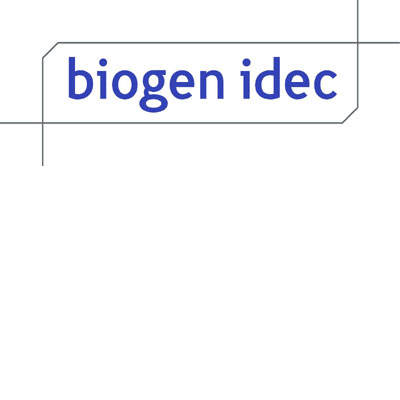Plegridy™ (peginterferon beta-1a) two-year data confirm maintenance of efficacy and safety in multiple sclerosis patients
Posted: 19 September 2014 | | No comments yet
Biogen Idec announced new data from the second year of its Phase 3 ADVANCE clinical trial that show the positive treatment effects of PLEGRIDY™ (peginterferon beta-1a) were maintained in adults with relapsing-remitting multiple sclerosis (RRMS) beyond the first year of the study…


Today Biogen Idec (NASDAQ: BIIB) announced new data from the second year of its Phase 3 ADVANCE clinical trial that show the positive treatment effects of PLEGRIDY™ (peginterferon beta-1a) were maintained in adults with relapsing-remitting multiple sclerosis (RRMS) beyond the first year of the study.1.2 These results were presented at the sixth Triennial Joint Meeting of the Americas Committee for Treatment and Research in Multiple Sclerosis and the European Committee for Treatment and Research in Multiple Sclerosis (ACTRIMS-ECTRIMS) in Boston.
“These new, two-year data from ADVANCE further support the compelling efficacy and safety of PLEGRIDY, providing physicians and patients with additional confidence in the benefits of using PLEGRIDY to treat this chronic disease,” said Gilmore O’Neill, vice president, Multiple Sclerosis Research and Development at Biogen Idec.
Efficacy and Safety of PLEGRIDY Maintained Over Two Years
Post-hoc analyses from the two-year, Phase 3 ADVANCE clinical trial confirm that PLEGRIDY’s positive effects on reducing disease activity and disability progression were maintained in year two of the study. A significantly higher proportion of patients taking PLEGRIDY during both years of the study experienced no evidence of disease activity (NEDA) – defined as the absence of clinical and MRI disease activity over two years of treatment – compared to those who switched to PLEGRIDY from placebo. Also, those treated with PLEGRIDY for both years of the study had significant reductions in the risk of 24-week confirmed disability progression compared to patients treated with placebo during the first year.1,2
In addition, new data from the second year of ADVANCE show that patients who took PLEGRIDY throughout the study experienced statistically significant improvements in clinical and MRI outcomes – including annualised relapse rate (ARR), risk of relapse, risk of 24-week confirmed disability progression, and number of brain lesions – when compared to those who switched to PLEGRIDY after taking placebo for the first year. This new data also showed that the safety profile of PLEGRIDY was consistent between years one and two of the study.1,2
“The ADVANCE data suggest that treatment with PLEGRIDY offers benefits in reductions in relapses, confirmed disability progression and brain lesions over the course of two years,” said Douglas Arnold, M.D., professor, Montreal Neurological Institute, McGill University. “Results from the second year of ADVANCE also confirm the positive safety and tolerability profiles of PLEGRIDY seen in year one, which is very encouraging.”
These data will be presented in the following platform and poster presentations:
- Clinical Efficacy of Peginterferon Beta-1a in Relapsing-Remitting Multiple Sclerosis: 2-year Data from the Phase 3 ADVANCE Study (platform FC2.5) will be presented on Friday, Sept. 12 at 9:03 a.m. ET1
- Effect of Peginterferon Beta-1a on MRI Measures and Freedom from Measured Disease Activity: 2-year Results from the Phase 3 ADVANCE Study (poster P067) will be available for viewing on Thursday, Sept. 11 from 3:30-5:00 p.m. ET2
- Calabresi PA et al. Clinical efficacy of peginterferon beta-1a in relapsing-remitting multiple sclerosis: 2-year data from the phase 3 ADVANCE study. FC2.5 poster presented at ACTRIMS-ECTRIMS 2014.
- Arnold DL et al. Effect of peginterferon beta-1a on MRI measures and freedom from measured disease activity: 2-year results from the phase 3 ADVANCE study. P067 poster presented at ACTRIMS-ECTRIMS 2014.




